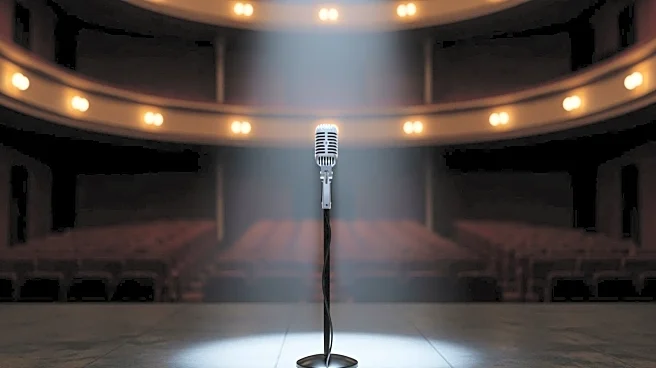What's Happening?
Reese Witherspoon recently shared insights into her challenging experience hosting 'Saturday Night Live' (SNL) shortly after the 9/11 attacks. Witherspoon, who was 24 at the time, hosted the first episode after the tragedy, a task she described as overwhelming.
She was persuaded by SNL's Lorne Michaels to proceed with the hosting, despite her initial reservations. The episode featured appearances by Rudy Giuliani and Paul Simon, aiming to restore a sense of normalcy and humor to the nation. Witherspoon's monologue, which avoided direct references to the attacks, was met with mixed reactions from the show's staff. Despite the pressure, Witherspoon fulfilled her role, though the experience deterred her from returning to SNL for 14 years.
Why It's Important?
Witherspoon's account highlights the significant role entertainment plays in national healing and morale. Her experience underscores the immense pressure on public figures to navigate sensitive topics while maintaining a balance between humor and respect. The episode marked a pivotal moment for SNL, as it attempted to provide comfort and laughter in a time of national grief. This event also reflects the broader challenges faced by entertainers in addressing societal issues, illustrating the delicate balance between entertainment and social responsibility.
What's Next?
Witherspoon eventually returned to host SNL in 2015, indicating a reconciliation with the show. Her reflections may prompt discussions on how entertainment platforms can better support hosts and performers during challenging times. The entertainment industry might also consider developing strategies to address sensitive topics more effectively, ensuring that performers are adequately prepared and supported.

















